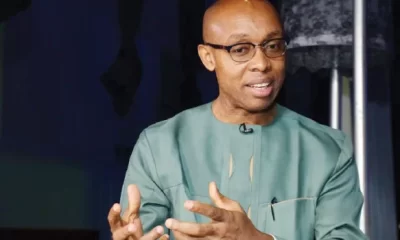Democracy & Governance
Tardiness in Catching the Thief? -By Soji Apampa

At a cost of over US$1bn, have we inadvertently paid to spread a message that it pays to be militant? Have we telegraphed a blueprint to those with grievances on how to eat their cake and still have it? What then are the implications of all of this for the relatively newer threat that is Boko Haram? Will over US$1bn be spent on them too?
“With tardiness in catching the thief, the thief caught the owner!” is a loose translation of a very powerful Yoruba proverb, which loosely means that with the failure to deal decisively with problems as early as you can, those same problems soon become monsters that come back to haunt you. Has there been a failure to deal decisively with the issue of Niger Delta militancy and has the amnesty programme now created a monster that might return to bite the new Buhari administration?
Government Ekpemupolo, popularly known as Tompolo, is said to have called the commanders of militant groups in the Niger Delta region to an ‘urgent and crucial’ meeting about a week ago. The President of National Council of Niger Delta Ex-Agitators (NCNDE), ‘General’ Israel Akpodoro, in an interview in Abuja alleged that the meeting had mischief and bad intentions written all over it and as a result advised council members not to attend. Where does Tompolo get the impertinence and audacity to make such a call? The meeting, which was scheduled for July 25, 2015, was subsequently cancelled after several calls were made by former President Goodluck Jonathan, Elder Statesman Edwin Clark and several PDP governors to the ex-militant.
The late President Umaru Musa Yar’Adua led administration initiated the Presidential Amnesty Programme (PAP) or Niger Delta Amnesty Programme (NDAP) in 2009. At the time the programme was put forward by Yar’Adua’s administration, it seemed to have been the only effective scheme at re-gaining stability and development in the region. At the peak of the insurgency, oil production dropped from 2.6 million barrels per day to merely 600,000 barrels per day i.e. a 70 percent drop in production with weighty impact on revenues accruing to the Federation Account. Before the amnesty programme, research suggests that in 2008, about US$33.8 billion of Nigeria’s average daily oil production was either stolen or shut-in (inaccessible) due to agitations in the region. On the surface, the amnesty programme could be considered a success due to the subsequent stability in the region. It is believed that the amnesty programme has cost the government a cumulative total of well over US$1 billion between 2009 and 2012. How certain should Nigerians be that the ends have justified the means? Some commentators have suggested that the current amnesty programme in Nigeria as it stands, is the most expensive Disarmament, Demobilisation and Re-integration (DDR) programme in the world.
Should this be your conclusion, Your Excellency, then we plead that you, as a matter of extreme urgency, recover ALL the sums paid over to him and all others who may have benefited in a similar way, and dis-gorge them of any further profits made in the handling of such sums.
The primary objective of a disarmament and demobilisation programme is to disarm agitators and disband a armed group by breaking down its command structure, making remobilisation nearly impossible. The PAP has, in fact, done the opposite. In extremely ironic terms, it has armed powerful militants (some with stupendous wealth and new military hardware) and preserved the existing command structure via patronage, as payments (averaging $40,000 per militant on a cumulative basis) are reportedly made through the command and control structures of the rebel forces. Under Jonathan’s administration, Tompolo was said to have been awarded a US$103 million pipeline surveillance contract from the NNPC, amongst other contracts. Tompolo has since acquired a number of warships and vessels in the disguise of ‘securing the waterways’ through his Global West Vessel Specialist Limited (GWVSL) company, a job that should be the sole responsibility of the Nigerian Navy. Does this not grossly undermine efforts at national security and pose a significant risk?
In the run up to the presidential elections, the Oodua Peoples Congress (OPC) claimed that the previous administration also awarded them a pipeline surveillance contract worth approximately N9 billion. Was sound judgement not exercised by the past administration in these cases or was it simply used as a pacifying tactic? Whatever the case may be, could these arguments be the impetus for Tompolo’s bravado? The amnesty programme, which is slated to end in December 2015, is yet to articulate a concrete exit strategy. This coupled with the defeat of a former Niger Delta President at the polls has inadvertently created legitimate concerns for some powerful militants – especially those who have fed fat off the state. The call for a meeting plainly suggests the flexing of muscles by a ‘Government’ who has become a Government force unto himself.
At a cost of over US$1bn, have we inadvertently paid to spread a message that it pays to be militant? Have we telegraphed a blueprint to those with grievances on how to eat their cake and still have it? What then are the implications of all of this for the relatively newer threat that is Boko Haram? Will over US$1bn be spent on them too? The contracts and monies paid to Tompolo are actually over and beyond the Presidential Amnesty Programme sum and may turn out to be illicit in the way he was singled out for that level of gratification. Should this be your conclusion, Your Excellency, then we plead that you, as a matter of extreme urgency, recover ALL the sums paid over to him and all others who may have benefited in a similar way, and dis-gorge them of any further profits made in the handling of such sums. Mr. President, as the Yorubas have said, if we are tardy in catching the thief, the thief might well turn round to catch the owner!




















